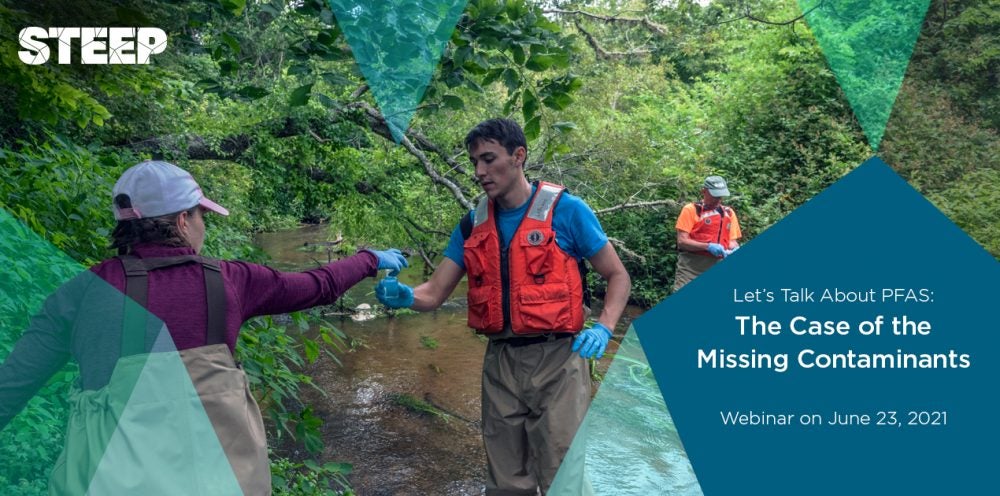 The first of this series, was held on February 3rd and focused on PFAS chemicals in Cape Cod drinking water. An audience of over 500 joined STEEP scientists and town officials to learn how Cape Cod is addressing contamination, what the new state regulations mean for water utilities, and what private well owners can do to reduce their exposure. Subsequent webinars were held on March 11th and April 14th and covered topics such as PFAS effects on human health, exposure during infancy, and COVID-19 susceptibility, as well as the essential and nonessential uses of PFAS, phasing them out of consumer products, and how to reduce individual and community exposure and protect the environment. To date, over 1000 people have attended these public sessions.
The first of this series, was held on February 3rd and focused on PFAS chemicals in Cape Cod drinking water. An audience of over 500 joined STEEP scientists and town officials to learn how Cape Cod is addressing contamination, what the new state regulations mean for water utilities, and what private well owners can do to reduce their exposure. Subsequent webinars were held on March 11th and April 14th and covered topics such as PFAS effects on human health, exposure during infancy, and COVID-19 susceptibility, as well as the essential and nonessential uses of PFAS, phasing them out of consumer products, and how to reduce individual and community exposure and protect the environment. To date, over 1000 people have attended these public sessions.
The next installment in the series “Let’s Talk About PFAS: The Case of the Missing Contaminants” will be held on June 23rd and will discuss recent efforts to track down harmful PFAS chemicals in the environment, including a new study in which researchers uncovered large quantities of previously undetected PFAS from fire-fighting foams and other unknown sources in six watersheds on Cape Cod. The event will feature speakers Denis LeBlanc, Research Hydrologist with the U.S. Geological Survey, and Bridger Ruyle, STEEP Trainee and PhD candidate in Environmental Science and Engineering, Harvard John A. Paulson School of Engineering and Applied Sciences, followed by a Q&A session.
Cape Cod is far from alone in grappling with PFAS. Hundreds of communities across the country have been affected by contaminated drinking water in what has become a national public health crisis. The STEEP virtual event is part of a new monthly webinar series to support not only Cape Cod, but also affected communities nationwide, by sharing information and offering solutions so that communities can better protect themselves. Future topics include how PFAS affect human health, in particular their effects on the immune system and susceptibility to COVID-19, and tackling the source of the problem through safer chemicals and products.
The virtual event is free and open to the public. All are welcome. Register today!

